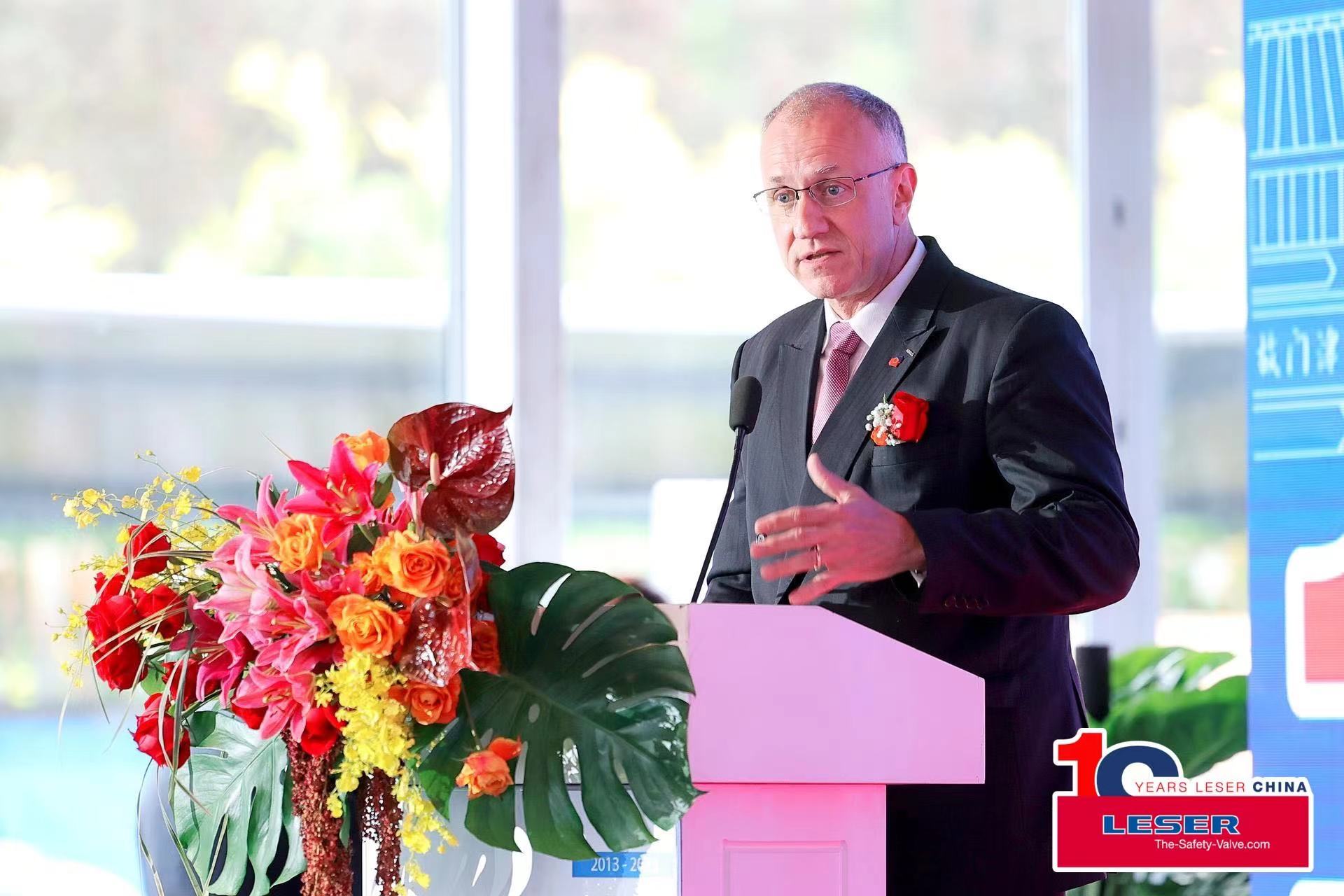Building Bridge for China-EU Cooperation

Dr. Christoph Schrempp. (COURTESY PHOTO)
By BI Weizi and LONG Yun
Dr. Christoph Schrempp, chairman of the Tianjin Branch of the European Union Chamber of Commerce in China (EUCCC) and general manager of Airbus Tianjin Delivery Center, is both an entrepreneur and an envoy dedicated to promoting economic and trade cooperation between China and the EU. He sat down with Science and Technology Daily recently to share his perspectives on China's opening up and its contribution to world economic recovery, while also introducing EUCCC's efforts to build a bridge for EU-China economic and trade cooperation and promote Tianjin to European companies.
Science and Technology Daily: What factors do EU companies consider when choosing investment destinations? What are Tianjin's advantages?
Dr. Christoph Schrempp: There are some common factors, such as how much companies feel welcomed by the city, local preferential policies, local infrastructure and availability of skilled labor. This leads me directly to the advantages of Tianjin. First, Tianjin has very good infrastructure, with Tianjin Port ranking among the top 10 container seaports in the world, and an international airport at Binhai that handles commercial aircraft and air cargo. Second, high-speed trains and highways connect Tianjin to other major Chinese cities. Lastly, Nankai University and Tianjin University provide a highly educated and skilled workforce.
In 2021, Tianjin set manufacturing as the foundation of the city's future development. What are your views on this?
Tianjin has always had a strong manufacturing base. Considering the current situation of the city, it makes sense to strengthen the strong areas and make them even stronger. In fact, this is something that we at the EUCCC strongly promote in our Tianjin Local Position Paper 2023/2024, where we recommend focusing on Tianjin's manufacturing strength. The idea of developing into an intelligent manufacturing hub is very much supported by the EUCCC.
What opportunities can China's high-quality development offer to the world?
Indeed, high-quality development provides opportunities for the world. China and its competitive ecosystem are now attractive to international companies. To quote our former president of EUCCC, "China is the fitness club for EUCCC member companies." On the other hand, the world can benefit from the results of high-quality development, such as environmental protection.
What role does EUCCC play in promoting Tianjin to European companies and attracting more companies to invest in Tianjin?
First of all, the people and companies involved in EUCCC see themselves as ambassadors to build bridges between China and their home countries. Companies based in Tianjin would not be here if their business was not profitable. Even during the worst of the COVID-19 pandemic, seven out of 10 member companies reported a positive EBIT (Earnings Before Interest and Tax), which sends a confidence-reinforcing signal to the world. In short, while we advocate for a better business environment in Tianjin Municipality, we pave the way for new investment to come in through our member companies in the form of their partners and suppliers.
From 2008 to 2022, China has made significant progress in opening up to the outside world, with its openness index rising from 0.6789 to 0.7517. What do you think about China's achievements in this area?
China has made visible efforts to open up, and remarkable changes have occurred with the first issuance of a negative list for foreign investment in China in 2018. This list replaced the previous government approval practice, which required any foreign investment into China to go through a government review process. It is also appreciated that the list of excluded sectors for foreign investment is getting shorter from one revision to the next. This is definitely a step in the right direction, and one can clearly see the continuous efforts the Chinese government has made and is making. We all know that for decades China has been and still is the powerhouse of the global economy.







